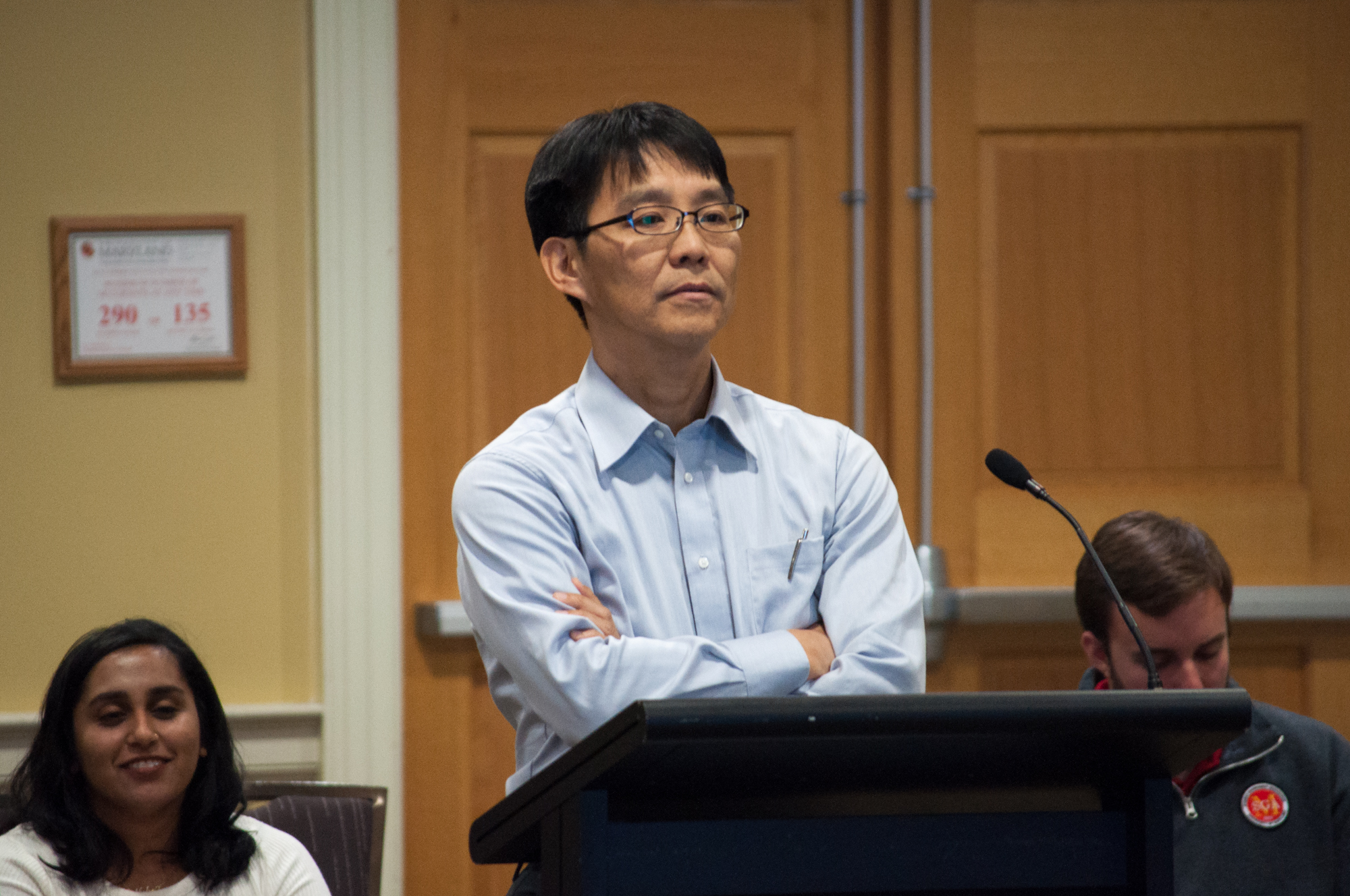A University of Maryland professor and researcher discussed factors to consider in potentially implementing a program to reduce students’ Metro fare at Wednesday’s SGA meeting.
Hiroyuki Iseki, an urban studies and planning professor and researcher at the National Center for Smart Growth — a campus organization that studies land-use issues — joined doctoral student Hyunjoo Eom in addressing the Student Government Association, discussing items to consider if this university were to install the Washington Metropolitan Area Transit Authority University Pass that reduces the cost of Metro rides for students.
The most important factor for this university to consider in looking at the U-Pass program is whether it would benefit a large number of students on the campus, Iseki said.
“WMATA’s offer is probably not reasonable,” Iseki said. “The benefits are going to be concentrated on a small group of students who take transportation.”
[Read more: UMD on-campus residents could start paying a mandatory fee for unlimited Metro access]
If implemented, the U-Pass program would provide students with unlimited rides on Metrorail and Metrobus for about $1 per student per day, according to WMATA’s website.
This university should consider other points, including whether the program should be optional or mandatory and sources of funding, Iseki said, citing a study he conducted through a University Sustainability Fund grant. The study examined options to manage transportation problems at this university, such as traffic and parking, he said.
Iseki worked with Eom, graduate student Claire Warner and university alumna Karitsa Norman on the study to examine eight universities using programs similar to WMATA’s U-Pass.
American University, one of the schools to participate in the study, mandates a $136 student fee per semester to provide U-Pass access for all full-time undergraduate and graduate students, according to the university’s website.
Most schools with a program like U-Pass have a similar mandatory student fee to fund it. At Portland State University and the University of Minnesota, students can choose to pay for a discount pass, Iseki said.
This version of a student transit pass program is best if the majority of the student body is not expected to use it, Iseki said.
While the U-Pass fee is usually lower at universities with mandatory student participation, the average Metro discount at universities is higher with the opt-in program at 41 percent, while the discount through mandatory programs is 38 percent, Iseki said.
But Iseki added that this data is not conclusive, because he has not studied enough schools to determine a common theme between the type of program and the discount rate.
An optional U-Pass program would be more beneficial for students at this university because with a mandatory fee, WMATA would take advantage of students who do not use the Metro as often, said Gideon Epstein, the SGA’s Cambridge Community representative.
“It would be unfair, without the proper polling of the student body, to vote [on the fee] in the SGA,” said Epstein, a sophomore government and politics major. “Right now, there is no consensus, and we haven’t done the necessary polling to get consensus.”
The SGA is planning to examine other options that may alleviate students’ transportation costs through options including scholarships, said SGA Academic Affairs Vice President Christine Hagan.
In a separate project, the SGA created an application for a transportation stipend for students required to complete off-campus internships for credit through their major. The application was scheduled to be available as of Wednesday.
The Residence Hall Association Senate voted in March to support a mandatory student fee costing $130 per semester that would allow on-campus residents unlimited Metro and Metrobus rides. The Graduate Student Government later adopted a resolution to support negotiations between RHA, WMATA and the Department of Transportation Services regarding a student fee to subsidize Metro costs.
[Read more: UMD SGA will fund Crab Feast after spending about 1/3 of its legislative reserves]
Jonathan Allen, SGA speaker of the legislature, said the RHA proposal is not justifiable because the majority of students do not pay more than $260 in Metro fees during an academic year.
“We never had research to back up whether or not it’s worth going ahead with this,” Allen said.
Student groups at this university, including SGA and the GSG, should hold a referendum to find out how many students are interested in the program, said DOTS Executive Director David Allen.
DOTS has tried to implement a program similar to what the RHA proposed, but WMATA’s request for $6 million for the program was too costly, given factors such as the high student population at this university, Allen said.
“We fully support the U-Pass program at the University of Maryland,” Allen said. “It would enable students to get around regions more easily and reduce vehicles on the road because we have the Metro and buses, but the question is cost.”



